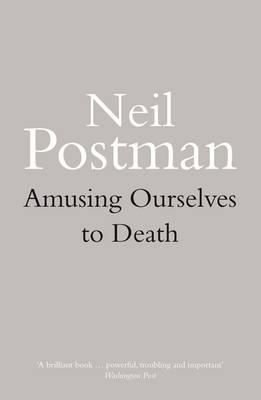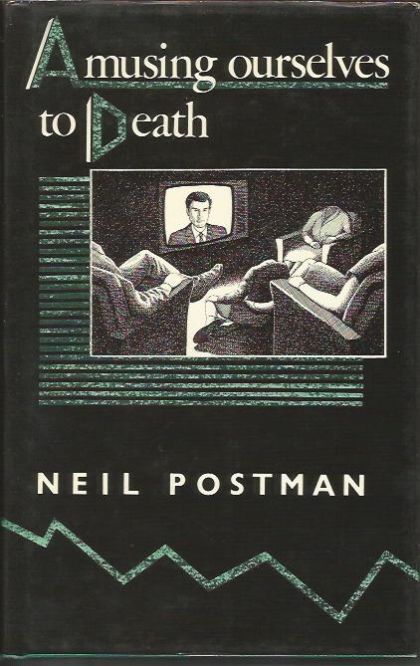


Postman gives a striking example: many of the first fifteen U.S.

Only in the printed word, he states, could complicated truths be rationally conveyed. He repeatedly states that the eighteenth century, the " Age of Reason", was the pinnacle for rational argument. Television in its present state, he says, does not satisfy the conditions for honest intellectual involvement and rational argument. "The truth or falsity of an advertiser's claim is simply not an issue" because more often than not "no claims are made, except those the viewer projects onto or infers from the drama." Because commercial television is programmed according to ratings, its content is determined by commercial feasibility, not critical acumen. Moreover, modern television commercials are not "a series of testable, logically ordered assertions" rationalizing consumer decisions, but "is a drama-a mythology, if you will-of handsome people" being driven to "near ecstasy by their good fortune" of possessing advertised goods or services. Postman argues that commercial television has become derivative of advertising. Accordingly, reading, a prime example cited by Postman, exacts intense intellectual involvement, at once interactive and dialectical whereas television only requires passive involvement. The faculties requisite for rational inquiry are simply weakened by televised viewing. He contends that "television is altering the meaning of 'being informed' by creating a species of information that might properly be called disinformation-misplaced, irrelevant, fragmented or superficial information that creates the illusion of knowing something but which in fact leads one away from knowing".ĭrawing on the ideas of media scholar Marshall McLuhan – altering McLuhan's aphorism " the medium is the message" to "the medium is the metaphor" – he describes how oral, literate, and televisual cultures radically differ in the processing and prioritization of information he argues that each medium is appropriate for a different kind of knowledge. Postman refers to the inability to act upon much of the so-called information from televised sources as the information-action ratio. Larry Gonick used this phrase to conclude his Cartoon Guide to (Non)Communication, instead of the traditional "the end". Television, he notes, has introduced the phrase "now this", which implies a complete absence of connection between the separate topics the phrase ostensibly connects. He argues that, owing to this change in public discourse, politics has ceased to be about a candidate's ideas and solutions, but whether he comes across favorably on television. Postman further examines the differences between written speech, which he argues reached its prime in the early to mid-nineteenth century, and the forms of televisual communication, which rely mostly on visual images to "sell" lifestyles. Postman asserts the presentation of television news is a form of entertainment programming arguing that the inclusion of theme music, the interruption of commercials, and "talking hairdos" bear witness that televised news cannot readily be taken seriously. Television de-emphasizes the quality of information in favor of satisfying the far-reaching needs of entertainment, by which information is encumbered and to which it is subordinate. Owing to this shortcoming, politics and religion are diluted, and "news of the day" becomes a packaged commodity.

Thus rational argument, integral to print typography, is militated against by the medium of television for this reason. The essential premise of the book, which Postman extends to the rest of his argument(s), is that "form excludes the content", that is, a particular medium can only sustain a particular level of ideas. Drawing an analogy with the latter scenario, Postman sees television's entertainment value as a present-day " soma", the fictitious pleasure drug in Brave New World, by means of which the citizens' rights are exchanged for consumers' entertainment. Postman distinguishes the Orwellian vision of the future, in which totalitarian governments seize individual rights, from that offered by Aldous Huxley in Brave New World, where people medicate themselves into bliss, thereby voluntarily sacrificing their rights.


 0 kommentar(er)
0 kommentar(er)
